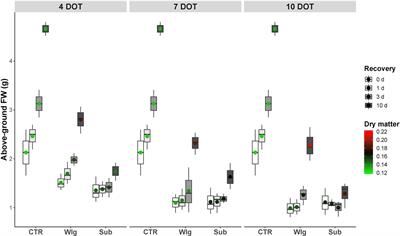EDITORIAL
Published on 11 Dec 2019
Editorial: Crop Response to Waterlogging
doi 10.3389/fpls.2019.01578
- 5,545 views
- 7 citations
24k
Total downloads
145k
Total views and downloads
EDITORIAL
Published on 11 Dec 2019
ORIGINAL RESEARCH
Published on 12 Sep 2019
MINI REVIEW
Published on 08 May 2019

ORIGINAL RESEARCH
Published on 03 May 2019

ORIGINAL RESEARCH
Published on 09 Apr 2019

ORIGINAL RESEARCH
Published on 05 Apr 2019

ORIGINAL RESEARCH
Published on 29 Mar 2019

ORIGINAL RESEARCH
Published on 26 Mar 2019

ORIGINAL RESEARCH
Published on 11 Mar 2019

REVIEW
Published on 12 Feb 2019

ORIGINAL RESEARCH
Published on 04 Feb 2019

ORIGINAL RESEARCH
Published on 01 Feb 2019
